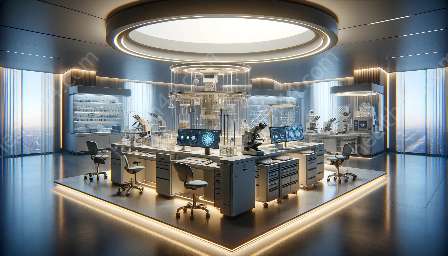Water purification systems play a crucial role in ensuring the safety and purity of water used in various industries and applications. These advanced systems not only provide clean water but also demonstrate compatibility with laboratory equipment and medical devices. This article will delve into the world of water purification systems, their significance, and their intersection with laboratory equipment as well as medical devices and equipment.
The Significance of Clean Water
Clean water is essential for sustaining life, and it serves as the foundation of many crucial processes in different industries. From pharmaceutical manufacturing to laboratory research, access to purified water is imperative.
Water purification systems not only remove impurities and contaminants but also ensure that the water meets specific quality standards, making it suitable for various applications. In laboratory settings, purified water is essential for conducting accurate experiments and producing reliable results. Similarly, in the medical field, access to clean water is vital for medical device sterilization and patient care.
Understanding Water Purification Systems
Water purification systems are designed to eliminate impurities, bacteria, and other harmful substances from water, making it safe for consumption and various industrial processes. These systems involve the use of advanced technological processes such as filtration, reverse osmosis, ultraviolet (UV) treatment, and distillation to achieve water purity.
Some advanced water purification systems are equipped with monitoring and control features, allowing for real-time assessment of water quality. This ensures that the water meets the required standards and can be seamlessly integrated with laboratory equipment and medical devices.
Compatibility with Laboratory Equipment
Laboratory equipment requires access to pure water for various applications, including media preparation, sample dilution, and equipment sterilization. Water purification systems are designed to provide the high-quality water necessary for these tasks, making them indispensable for laboratory operations.
Modern water purification systems are equipped with features that cater to the specific needs of laboratory workflows. They can be seamlessly integrated with analytical instruments, chromatography systems, and other laboratory equipment, ensuring a consistent supply of purified water for research and testing purposes.
Intersection with Medical Devices and Equipment
Medical devices and equipment used in healthcare settings rely on clean water for sterilization, equipment maintenance, and direct patient care. Water purification systems provide the necessary supply of high-quality water, contributing to the efficient functioning of medical facilities and ensuring optimal patient safety.
These systems are compatible with medical devices such as autoclaves, sterilizers, and dialysis machines, delivering water that meets stringent purity standards. The integration of water purification systems with medical equipment enhances the overall quality of healthcare services and minimizes the risk of contamination.
Value in Different Industries
The impact of water purification systems extends beyond laboratories and medical facilities, encompassing a wide range of industries. From pharmaceutical production to food and beverage processing, water purification systems are integral to maintaining hygiene, quality, and safety standards.
By providing a reliable source of purified water, these systems contribute to regulatory compliance and product quality assurance. They play a crucial role in safeguarding public health and environmental sustainability, making them essential components of modern industrial operations.
Conclusion
Water purification systems form the backbone of clean water supply in diverse industries, ensuring that water meets stringent quality requirements. Their seamless compatibility with laboratory equipment and medical devices underscores their integral role in enabling precise research, healthcare services, and industrial processes. As technology continues to advance, water purification systems will further evolve to meet the evolving needs of various sectors, emphasizing the importance of investing in innovative and reliable solutions.


